General Secretary To Lam warmly welcomed Prime Minister Ishiba Shigeru’s visit, coinciding with Vietnam’s grand celebration of the 50th anniversary of national reunification.
He emphasized the significance of the visit, which opens a new phase of development in the two countries' comprehensive strategic partnership.
Prime Minister Ishiba expressed his delight at returning to Vietnam after 35 years and for the first time as Prime Minister. He conveyed his deep admiration for President Ho Chi Minh and his impression of Vietnam’s historic national liberation movement.
A vision for the future partnership
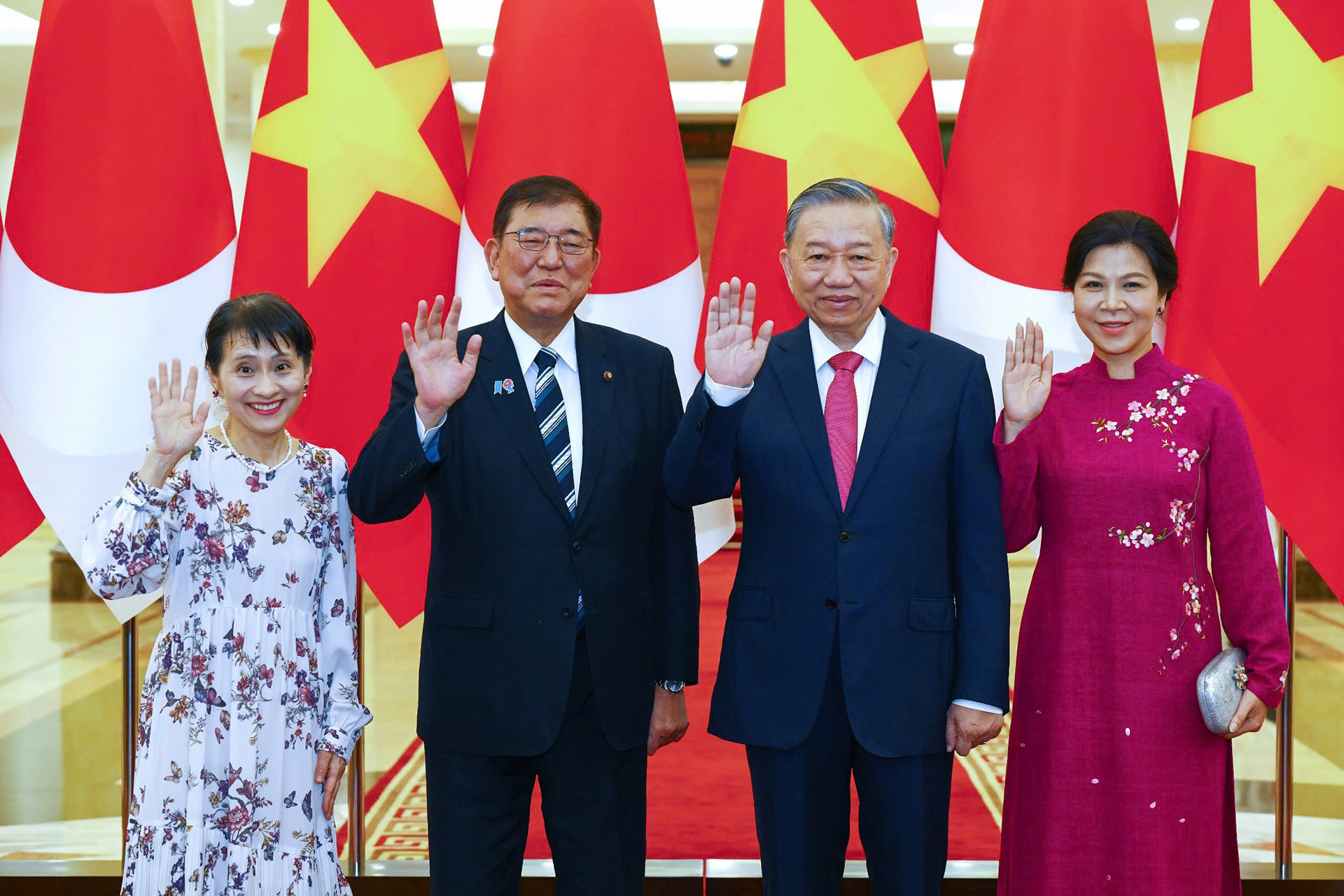
General Secretary To Lam shared Vietnam’s development goals for 2030 and 2045, outlining the nation’s strategy to renew its economic model for rapid and sustainable growth in a new era.
He emphasized Vietnam’s steadfast foreign policy of independence, self-reliance, peace, cooperation, and development, with a focus on deepening ties with strategic partners, particularly Japan, which Vietnam regards as a leading and long-term partner.
Prime Minister Ishiba praised Vietnam’s forward-looking economic strategy and its positive results in administrative reform.
He expressed confidence that Vietnam would achieve even greater success in this new era and reaffirmed Japan’s commitment to accompany Vietnam on its development journey.
Deepening Vietnam - Japan relations
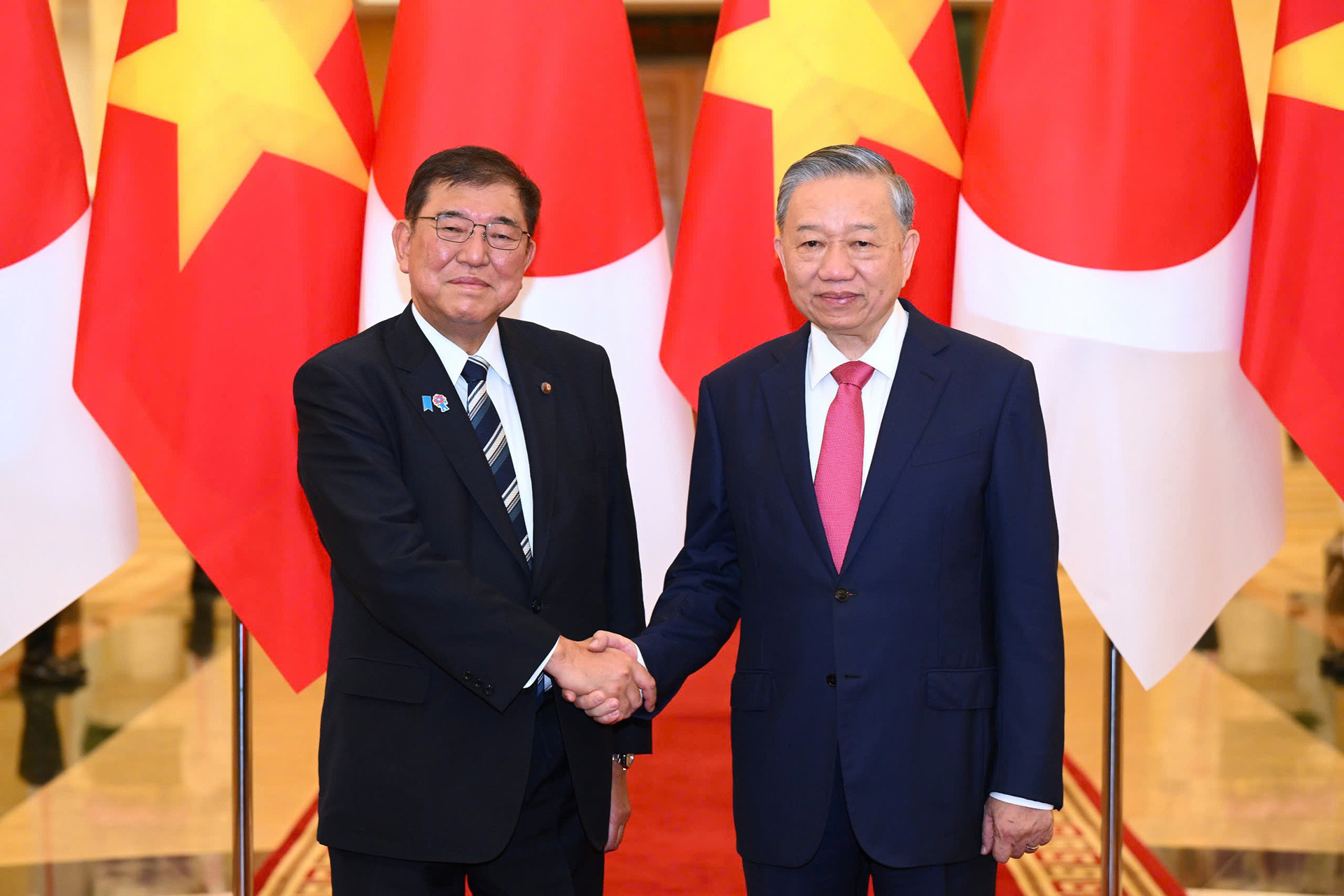
The two nations share more than 1,300 years of historical ties. General Secretary To Lam expressed his pleasure at the continued comprehensive development of Vietnam-Japan relations, especially following the elevation to a comprehensive strategic partnership.
He proposed seven major directions to strengthen bilateral cooperation, including enhancing political trust, promoting substantive and effective security and defense cooperation, expanding economic ties based on science, technology, and high-quality human resources, and encouraging Japan’s active participation in key infrastructure projects through new-generation ODA funding.
He emphasized science, technology, innovation, and digital transformation as new pillars of the relationship, calling for strengthened cooperation in these areas and in human resource training.
Prime Minister Ishiba reaffirmed that Vietnam is an indispensable partner. He pledged that Japan would continue supporting Vietnam in building an independent and self-reliant economy, advancing industrialization and modernization, and achieving its strategic socioeconomic goals in the new era.
He also confirmed Japan’s commitment to supporting the Vietnamese community of over 600,000 people living, studying, and working in Japan. Japan will send a delegation to participate in the World Police Music Festival hosted by Vietnam’s Ministry of Public Security.
Japan aims to deepen economic cooperation, ODA, investment, defense and cybersecurity collaboration, cultural and people-to-people exchanges, and cooperation in emerging fields such as digital transformation, innovation, quantum technology, and semiconductors. Both sides also agreed to strengthen high-quality human resource training, including at the Vietnam - Japan University, a symbol of bilateral collaboration.
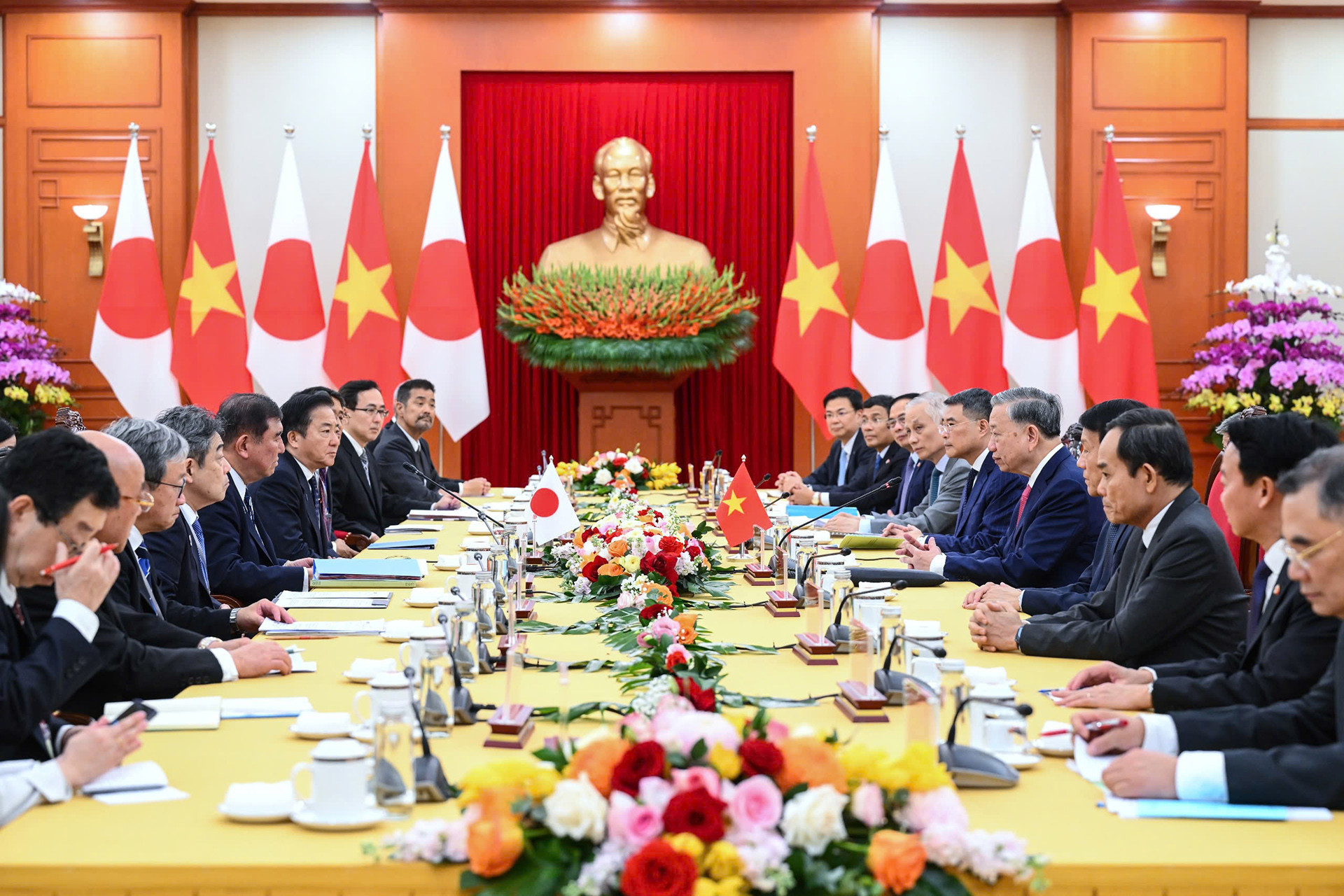
In the evening, at the headquarters of the Party Central Committee, Mrs. Ngo Phuong Ly, spouse of General Secretary To Lam, hosted a friendly meeting with Mrs. Ishiba Yoshiko, spouse of Prime Minister Ishiba Shigeru.
Mrs. Ngo Phuong Ly welcomed Mrs. Ishiba Yoshiko on her first official visit to Vietnam, expressing hopes that she would have memorable experiences and gain a deeper understanding of Vietnam’s culture and people.
Mrs. Ishiba Yoshiko shared her delight at visiting Vietnam for the first time, expressing admiration for the country's beauty, dynamism, and the friendliness of its people.
During the meeting, Mrs. Ngo Phuong Ly introduced Mrs. Ishiba Yoshiko to Hanoi’s traditional green rice cake (banh com), with both ladies participating in a cake-making experience.
Mrs. Ishiba Yoshiko enjoyed the traditional Vietnamese cake and noted that while rice is a staple food in Japan as well, this was her first time seeing and tasting a cake made from green rice.
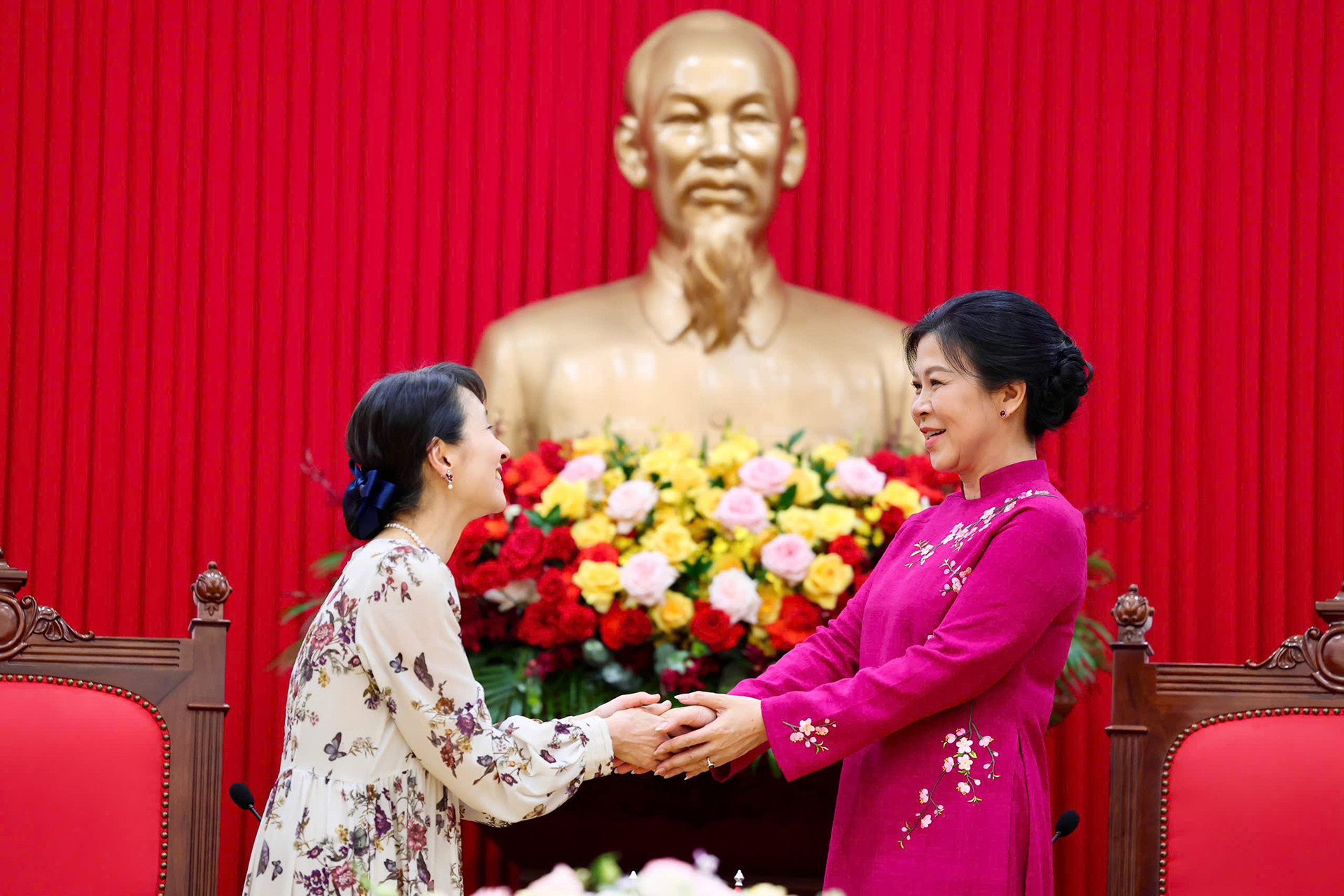
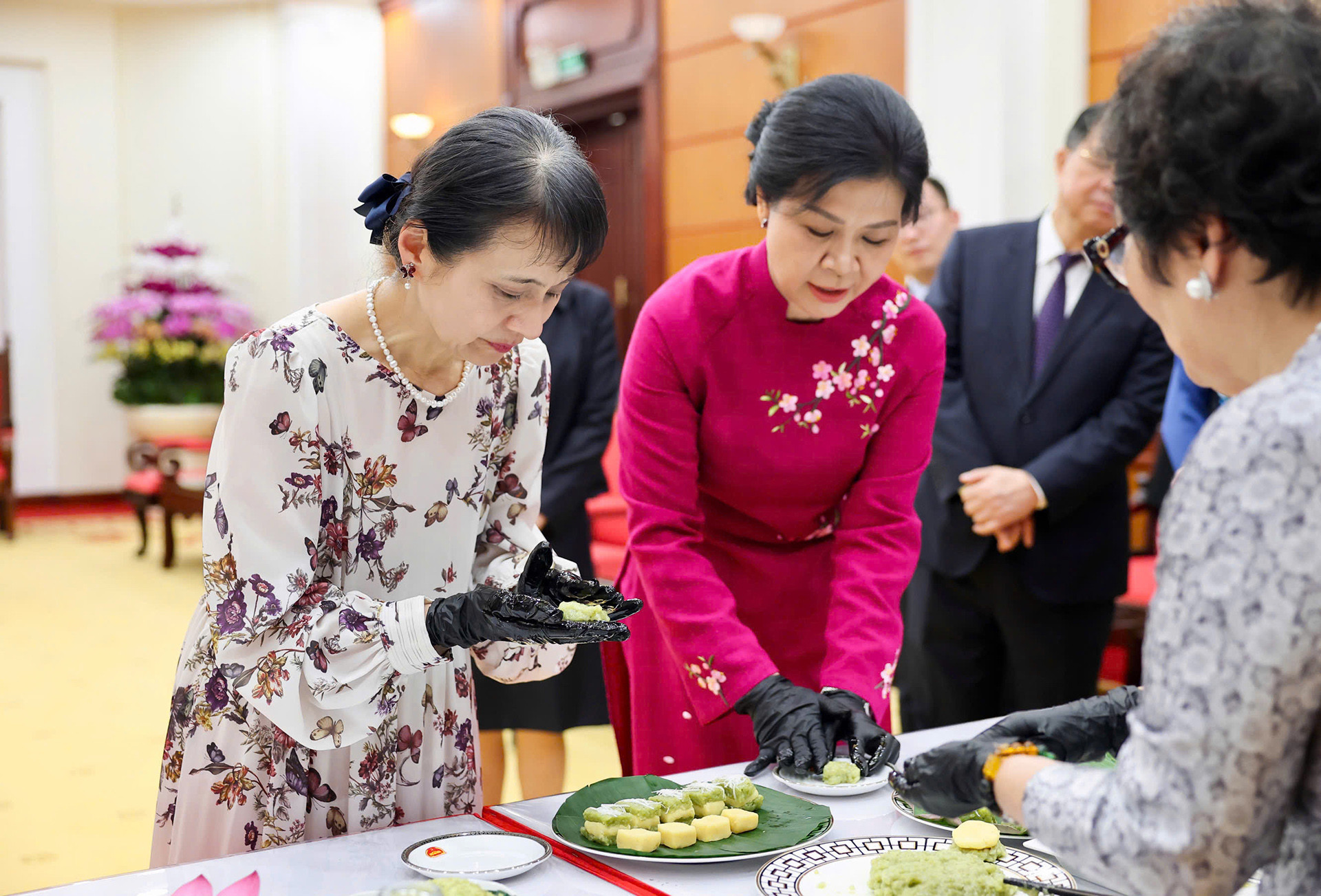
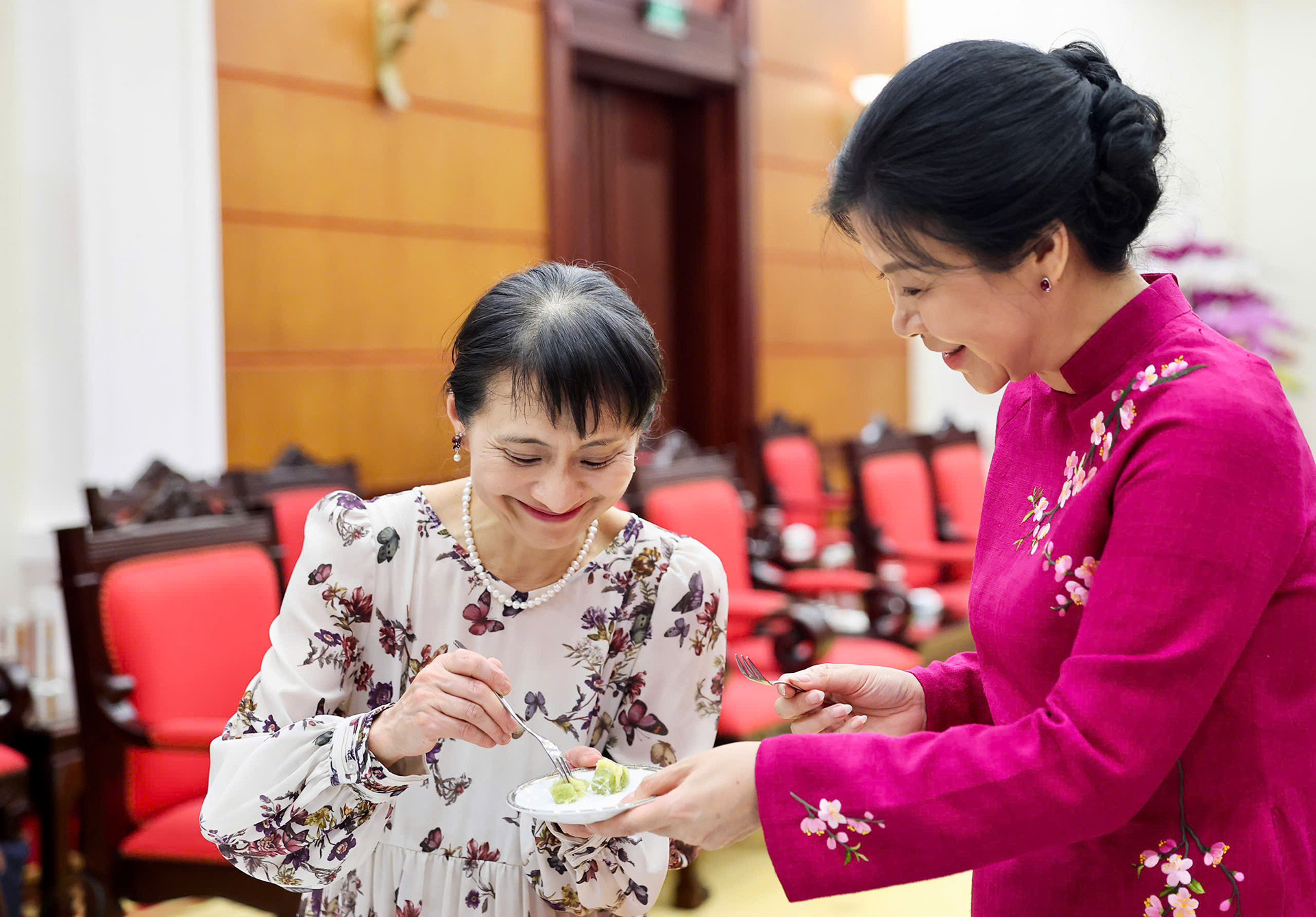
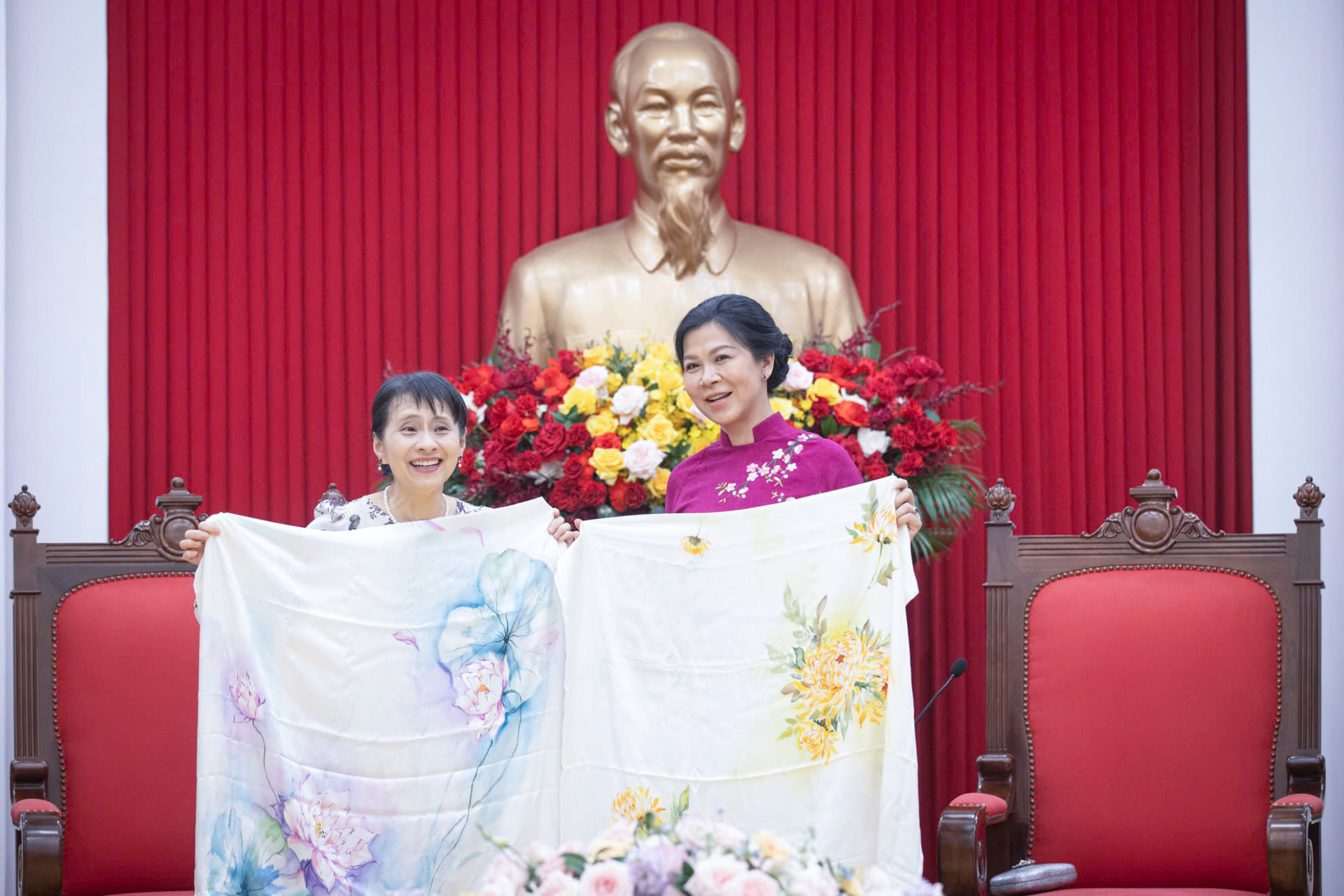
She also shared her impressions from visiting Japanese enterprises operating in Vietnam and the Vietnamese Women's Museum, praising the diligence, resilience, and contributions of Vietnamese women throughout history.
Mrs. Ngo Phuong Ly expressed appreciation for the deep affection and warm sentiments shown by Prime Minister Ishiba Shigeru and Mrs. Ishiba Yoshiko toward Vietnam.
She proudly spoke of Vietnamese women's enduring spirit of "heroism, resilience, loyalty, and resourcefulness" and their contributions both in the past struggles for national independence and in the country's current development.
The two ladies exchanged views on the cultural and artistic values of Vietnam and Japan, highlighting that the cultural and culinary products of both nations are highly popular among their peoples.
Mrs. Ngo Phuong Ly presented Mrs. Ishiba Yoshiko with two Vietnamese silk scarves embroidered with lotus and chrysanthemum flowers, symbols of traditional culture in both Vietnam and Japan.
Mrs. Ishiba Yoshiko emphasized the cultural similarities between the two nations and expressed her desire to promote further exchanges, cooperation, and programs that build mutual understanding and strengthen the friendship between the Vietnamese and Japanese people.
Tran Thuong